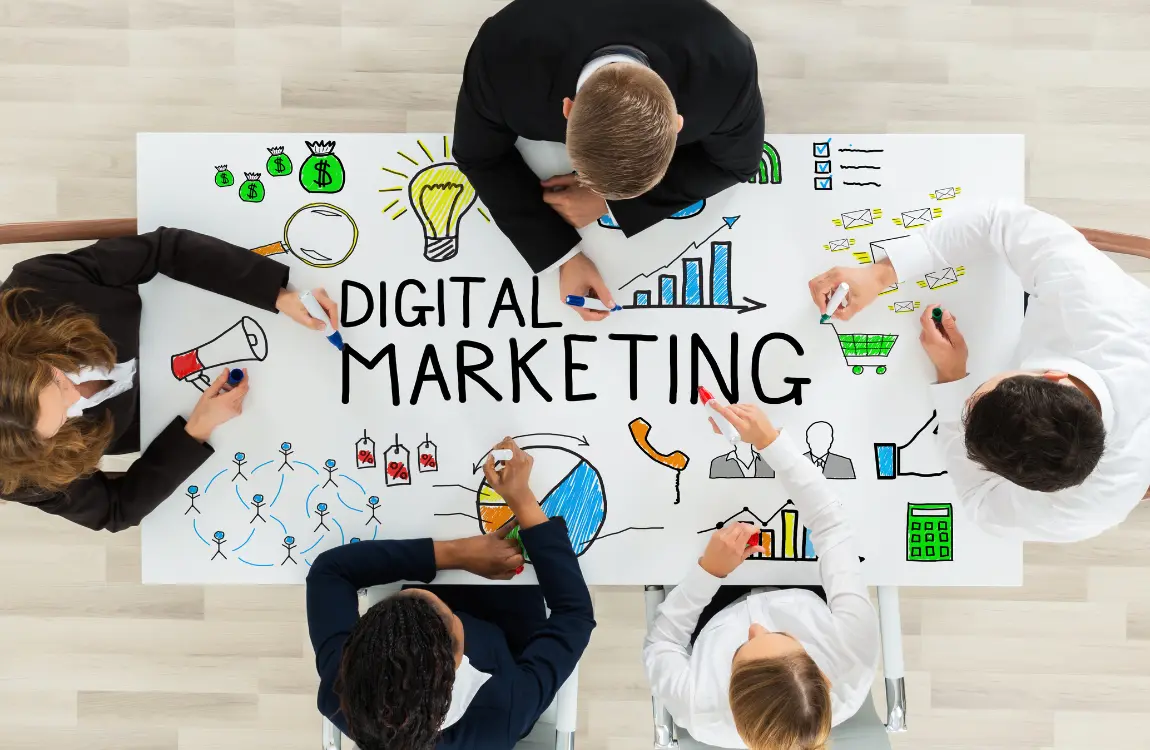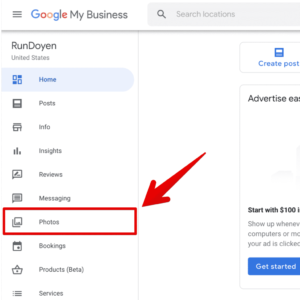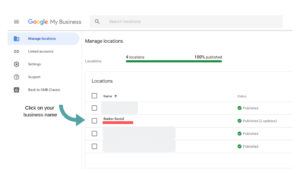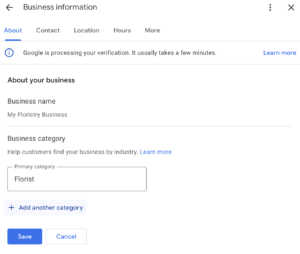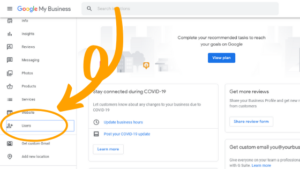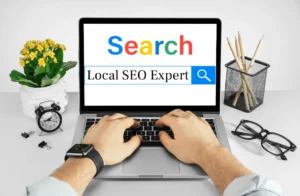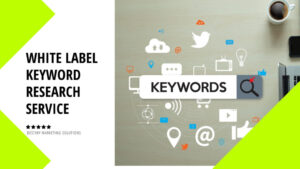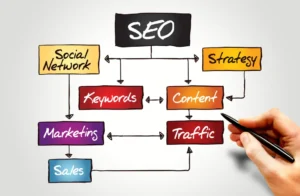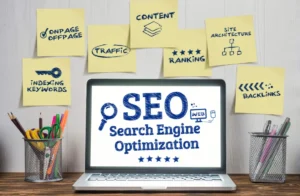Digital marketing is crucial for small businesses because it increases online visibility and drives customer engagement. It offers cost-effective ways to reach a larger audience.
Small businesses often struggle to compete with larger companies. Digital marketing levels the playing field by providing affordable tools for promotion and customer engagement. With the right strategies, small businesses can target specific demographics, track customer behavior, and measure campaign effectiveness.
Social media, email marketing, and SEO help build brand awareness and foster customer loyalty. Digital marketing also allows real-time adjustments to marketing strategies based on data analytics. This adaptability ensures that small businesses can stay relevant in a constantly changing market. Investing in digital marketing is essential for growth and long-term success.

Credit: www.linkedin.com
Increased Online Visibility
Small businesses need to be seen online to grow. Digital marketing helps increase online visibility. This brings more customers and helps the business succeed. Let’s explore how digital marketing boosts online visibility for small businesses.
Improved Search Engine Rankings
Search engine rankings are crucial for any small business. Higher rankings mean more people find your website. Digital marketing helps improve these rankings. Here’s how:
- Keywords: Using the right keywords attracts more visitors.
- Quality Content: Good content keeps visitors engaged.
- Backlinks: Links from other sites boost your credibility.
Search engines love fresh content. Regularly updating your website with new blogs, articles, and videos helps. SEO strategies make your site more attractive to search engines. This means higher rankings and more traffic.
Let’s look at a simple table showing the benefits of improved search engine rankings:
| Benefit | Impact |
|---|---|
| Higher Traffic | More potential customers |
| Better Credibility | People trust your business more |
| Increased Sales | Higher revenue |
All these benefits come from improved search engine rankings. This is why digital marketing is so important for small businesses.
Targeted Advertising
Targeted advertising reaches people who are interested in your products. This makes your marketing efforts more effective. Here’s why targeted advertising works well for small businesses:
- Specific Audience: Ads reach people who want your product.
- Cost-Effective: Money is not wasted on uninterested people.
- Better Engagement: Ads get more clicks and views.
Using digital marketing tools, you can create ads for specific groups. For example, a bakery can target ads to people who love cakes. This leads to higher engagement and more sales.
Here’s an example of how targeted advertising works:
- Create an ad for your product.
- Choose the audience based on age, location, and interests.
- Run the ad and monitor its performance.
- Adjust the ad based on results to improve effectiveness.
Targeted advertising ensures your ads reach the right people. This makes digital marketing a powerful tool for small businesses.

Credit: www.linkedin.com
Cost-effective Marketing Strategy
Digital marketing is crucial for small businesses. It allows them to reach a larger audience without spending a lot of money. A cost-effective marketing strategy can help small businesses compete with bigger companies. This strategy focuses on using digital channels to promote products and services, often at a lower cost than traditional methods.
Lower Advertising Costs
Small businesses often have limited budgets. Digital marketing helps them save money. Traditional advertising methods like TV and print ads can be very expensive. Digital marketing offers cheaper alternatives.
Here are some ways small businesses can lower advertising costs with digital marketing:
- Social Media Ads: Platforms like Facebook and Instagram offer affordable advertising options.
- Email Marketing: Sending promotional emails is cheaper than printing flyers.
- Content Marketing: Writing blog posts or making videos can attract customers without spending a lot of money.
Let’s compare the costs of traditional and digital advertising:
| Advertising Method | Cost |
|---|---|
| TV Ads | $1,000 – $50,000 |
| Print Ads | $500 – $20,000 |
| Social Media Ads | $5 – $50 per day |
| Email Marketing | $0.01 – $0.03 per email |
Better Return On Investment
Digital marketing often provides a better return on investment (ROI) for small businesses. This means small businesses can earn more money compared to what they spend on marketing. Traditional marketing methods can be less effective and more costly.
Here are some reasons why digital marketing offers better ROI:
- Targeted Ads: Digital platforms allow businesses to target specific audiences. This means ads are shown to people who are more likely to buy.
- Measurable Results: Digital marketing tools provide detailed analytics. Businesses can see what works and what doesn’t, helping them improve their strategies.
- Quick Adjustments: Businesses can easily change their digital marketing campaigns based on performance. This flexibility leads to better results.
Consider these ROI statistics for different marketing methods:
| Marketing Method | Average ROI |
|---|---|
| Email Marketing | $38 for every $1 spent |
| Social Media Marketing | $2.50 for every $1 spent |
| Content Marketing | $3 for every $1 spent |
| TV Ads | $1.50 for every $1 spent |
Increased Customer Engagement
Why Digital Marketing is Important for Small Business lies in its ability to create Increased Customer Engagement. Engaging with customers boosts loyalty, trust, and sales. Small businesses can leverage digital marketing to interact with their audience effectively and build lasting relationships. By using various digital platforms, small businesses can keep their customers engaged, informed, and connected.
Social Media Interaction
Social media platforms like Facebook, Instagram, and Twitter offer excellent opportunities for small businesses to engage with their audience. These platforms allow for real-time interaction, enabling businesses to respond promptly to customer inquiries and feedback.
- Live Videos: Hosting live videos on social media can increase engagement. You can showcase products, answer questions, and provide behind-the-scenes content.
- Polls and Surveys: Conducting polls and surveys on social media helps understand customer preferences and opinions. This interaction makes customers feel valued.
- Contests and Giveaways: Running contests and giveaways can attract more followers and increase engagement. It encourages users to participate and share your content.
Using social media analytics, small businesses can track engagement metrics like likes, comments, and shares. This data helps refine strategies to better connect with the audience. A consistent and active presence on social media keeps your brand in the minds of customers, leading to increased loyalty and sales.
Personalized Email Marketing
Email marketing remains a powerful tool for small businesses to engage with customers. By sending personalized emails, businesses can tailor their messages to individual customer preferences and behaviors. Personalized emails can include:
- Special Offers: Sending exclusive offers or discounts to loyal customers makes them feel special and valued.
- Birthday Wishes: Sending birthday greetings with a special offer can create a personal connection.
- Product Recommendations: Suggesting products based on past purchases can increase the likelihood of repeat sales.
Using email segmentation, small businesses can categorize their email list based on demographics, purchase history, and behavior. This ensures that each customer receives relevant content, increasing open rates and engagement.
| Benefit | Explanation |
|---|---|
| Higher Open Rates | Personalized emails are more likely to be opened. |
| Increased Click-Through Rates | Relevant content encourages more clicks. |
| Improved Customer Loyalty | Personalized messages foster stronger relationships. |
By leveraging personalized email marketing, small businesses can maintain a direct line of communication with their customers. This helps in building trust and loyalty, ultimately leading to increased customer engagement and sales.
Improved Customer Targeting
Digital marketing is crucial for small businesses because it enhances customer targeting. Improved customer targeting means reaching the right audience with the right message. It helps small businesses maximize their marketing budget and achieve better results. This method ensures that marketing efforts are effective and efficient.
Data-driven Marketing
Data-driven marketing uses data to guide marketing decisions. It helps small businesses understand their customers better. This approach allows businesses to create personalized marketing campaigns.
Benefits of Data-Driven Marketing:
- Increased customer engagement
- Higher conversion rates
- Better return on investment (ROI)
Small businesses can collect data from various sources:
- Website analytics
- Social media insights
- Email marketing statistics
Using this data, businesses can segment their audience. This means dividing customers into groups based on their behavior and preferences. This targeted approach leads to more effective marketing campaigns. Small businesses can also use data to predict future trends and adjust their strategies accordingly.
Data-Driven Marketing Tools:
| Tool | Function |
|---|---|
| Google Analytics | Tracks website traffic and user behavior |
| Hootsuite | Manages social media accounts and tracks engagement |
| Mailchimp | Provides email marketing insights and analytics |
These tools help small businesses make informed decisions. They can identify what works and what doesn’t. This allows for continuous improvement and better marketing results.
Behavioral Tracking
Behavioral tracking monitors how customers interact with a business. This includes tracking website visits, social media activity, and email engagement. Understanding customer behavior helps in creating personalized experiences.
Key Elements of Behavioral Tracking:
- Page views
- Click-through rates
- Time spent on site
- Social media interactions
Behavioral tracking provides insights into customer preferences. It helps small businesses tailor their marketing messages. For example, if a customer frequently visits a product page, they might be interested in buying that product. Businesses can then send personalized offers to encourage the purchase.
Benefits of Behavioral Tracking:
- Better customer insights
- Personalized marketing
- Increased sales
Small businesses can use tools like:
- Google Tag Manager
- Hotjar
- Crazy Egg
These tools track user behavior and provide valuable data. This data helps in understanding what customers like and dislike. It also helps in identifying potential issues with the website or marketing strategy.
Behavioral tracking ensures that small businesses can provide a better customer experience. It helps in building stronger relationships with customers, leading to increased loyalty and sales.
Competitive Advantage
Small businesses often struggle to stay competitive. Digital marketing offers a unique opportunity to gain a competitive advantage. It provides tools and strategies that can help businesses stand out. Let’s explore how digital marketing levels the playing field and opens doors to global markets.
Leveling The Playing Field
Digital marketing levels the playing field for small businesses. They can now compete with larger companies. Here are some ways it achieves this:
- Cost-Effective Solutions: Digital marketing is cheaper than traditional advertising.
- Targeted Advertising: Small businesses can target specific audiences.
- Real-Time Analytics: Businesses can track their campaigns and make adjustments.
With these tools, small businesses can create impactful campaigns. They can reach their audience without breaking the bank. This gives them an edge over competitors.
| Traditional Marketing | Digital Marketing |
|---|---|
| Expensive | Cost-Effective |
| Hard to Measure | Real-Time Analytics |
| Broad Audience | Targeted Audience |
Digital marketing tools like social media, email campaigns, and SEO help small businesses. They can now reach the same audience as large corporations. This levels the playing field and allows them to compete effectively.
Access To Global Markets
Digital marketing opens up global markets for small businesses. They can reach customers around the world. Here are some benefits of accessing global markets:
- Increased Sales: More customers mean more sales.
- Diverse Customer Base: A global audience offers diverse customers.
- Brand Recognition: Global presence increases brand visibility.
With digital marketing, small businesses can use various tools to reach global markets:
- Social Media: Platforms like Facebook and Instagram have global reach.
- SEO: Optimizing for search engines helps attract international traffic.
- Online Marketplaces: Selling on platforms like Amazon opens up international sales.
These tools help small businesses access new markets. They can expand their customer base and increase sales. This gives them a competitive edge.
In summary, digital marketing provides small businesses with the tools to compete. It levels the playing field and opens up global markets. This gives them a significant competitive advantage.
Measurable Results
Small businesses thrive on data-driven decisions. Digital marketing offers measurable results that help track success and identify areas for improvement. These metrics ensure that every marketing dollar is well spent, making digital marketing a powerful tool for small businesses.
Analytics And Reporting
Analytics and reporting are crucial for small businesses. They provide insights into customer behavior, campaign effectiveness, and overall business health. With tools like Google Analytics, small businesses can track website traffic, user engagement, and conversion rates. This data helps in understanding what works and what needs adjustment.
Here are some key metrics to monitor:
- Website Traffic: Tracks the number of visitors to your site.
- Bounce Rate: Measures the percentage of visitors who leave after viewing one page.
- Conversion Rate: Indicates the percentage of visitors who complete a desired action.
- Average Session Duration: Shows how long visitors stay on your site.
These metrics provide a clear picture of your online performance. They help in making informed decisions to enhance your marketing strategies. For instance, a high bounce rate may suggest the need for better content or user experience improvements.
| Metric | Importance |
|---|---|
| Website Traffic | Measures reach and visibility |
| Bounce Rate | Indicates content relevance |
| Conversion Rate | Shows campaign effectiveness |
| Average Session Duration | Measures engagement |
Regular reporting helps track progress over time. It identifies trends and patterns, ensuring that your marketing strategies remain effective. With accurate data, small businesses can pivot quickly to capitalize on new opportunities or address emerging challenges.
A/b Testing
A/B testing is an essential tool in digital marketing. It involves comparing two versions of a webpage, email, or ad to see which performs better. This method helps optimize marketing strategies and improve overall performance.
Here are the steps to conduct A/B testing:
- Identify the Element to Test: This could be a headline, image, or call-to-action button.
- Create Two Versions: Develop an ‘A’ version (control) and a ‘B’ version (variation).
- Run the Test: Split your audience into two groups and show each group a different version.
- Analyze Results: Use metrics like click-through rates and conversion rates to determine the better-performing version.
A/B testing provides valuable insights into customer preferences. It helps refine marketing efforts and boosts engagement. For example, testing different headlines can reveal which one attracts more clicks, leading to higher conversion rates.
Benefits of A/B testing:
- Improves User Experience: Ensures that the best-performing elements are used.
- Increases ROI: Optimizes campaigns for better results.
- Reduces Risk: Identifies ineffective elements before a full-scale launch.
By continually testing and refining, small businesses can stay competitive. They can adapt quickly to changing market conditions and customer preferences, ensuring sustained growth and success.
Enhanced Brand Awareness
Digital marketing is a must-have for small businesses. It helps them reach a larger audience. One key benefit is Enhanced Brand Awareness. This means more people know and remember your brand. The more people recognize your brand, the more likely they are to buy from you.
Content Marketing
Content marketing is crucial for increasing brand awareness. It involves creating and sharing valuable content. This can be blog posts, videos, or infographics. Valuable content attracts and engages potential customers. It makes them trust your brand.
Here are some key benefits of content marketing:
- Builds trust: High-quality content makes your brand look credible.
- Boosts SEO: Search engines love fresh, relevant content. It helps you rank higher.
- Generates leads: Engaging content can turn visitors into customers.
Content marketing also helps you stay connected with your audience. Regular posts keep your brand in their minds. This connection builds loyalty. Loyal customers are more likely to recommend your brand to others.
Here is a simple table showing the types of content and their benefits:
| Type of Content | Benefits |
|---|---|
| Blog Posts | Boosts SEO, educates audience |
| Videos | Engages viewers, easy to share |
| Infographics | Visual appeal, easy to understand |
Social Media Branding
Social media branding is another powerful way to enhance brand awareness. It involves using social media platforms to promote your brand. Social media allows you to connect with a larger audience quickly.
Here are some tips for effective social media branding:
- Consistent branding: Use the same logo and colors across all platforms.
- Engage with followers: Reply to comments and messages promptly.
- Share user-generated content: This shows appreciation and builds community.
Social media platforms like Facebook, Instagram, and Twitter offer advertising options. These ads can target specific demographics. This ensures your brand reaches the right audience.
Here is a list of popular social media platforms and their primary benefits:
- Facebook: Great for community building and customer support.
- Instagram: Ideal for visual content and influencer partnerships.
- Twitter: Best for real-time updates and customer interactions.
Social media branding also helps in building relationships. These relationships turn followers into loyal customers. Loyal customers often become brand advocates. They share your content and recommend your brand.

Credit: www.biz4group.com
Improved Customer Support
Small businesses thrive on customer relationships. Digital marketing enhances these relationships by offering improved customer support. Digital tools enable small businesses to provide fast and efficient support, ensuring customer satisfaction and loyalty. This section will explore the key aspects of improved customer support through digital marketing.
Real-time Communication
Real-time communication is a game-changer for small businesses. It enables instant interaction with customers, addressing their queries and concerns promptly.
Here are some key benefits:
- Immediate Feedback: Customers can get their questions answered quickly.
- Live Chat: Tools like live chat on websites help in real-time problem-solving.
- Social Media Messaging: Platforms like Facebook and Instagram allow businesses to respond instantly.
- Email Support: Automated responses keep customers informed while waiting for detailed replies.
Real-time communication creates a direct line between the business and the customer, reducing wait times and increasing satisfaction. Using chatbots can further enhance this by providing 24/7 support, ensuring no query goes unanswered.
| Communication Tool | Benefit |
|---|---|
| Live Chat | Instant problem-solving |
| Social Media | Immediate interaction |
| Automated responses | |
| Chatbots | 24/7 availability |
Real-time communication tools help small businesses stay connected with their customers, fostering trust and loyalty.
Online Reputation Management
Online reputation management is crucial for small businesses. It involves monitoring and managing how your business is perceived online.
Key strategies include:
- Responding to Reviews: Address both positive and negative reviews promptly.
- Social Listening: Monitor social media for mentions of your business.
- Content Creation: Publish positive content to overshadow negative feedback.
- SEO Techniques: Use SEO to ensure positive information ranks higher.
Managing online reputation helps build trust with potential customers. Responding to reviews shows you value customer feedback and are committed to improving. Social listening helps you understand customer sentiment and address issues proactively.
Publishing positive content like customer testimonials and success stories can help counteract any negative feedback. SEO techniques ensure that when people search for your business, they see positive information first.
Effective online reputation management can turn a negative situation into a positive one, showing customers that you care about their experience.
Frequently Asked Questions
Why Is Digital Marketing Important For Small Businesses?
Digital marketing helps small businesses reach a larger audience, increase brand visibility, and drive more sales. It offers cost-effective marketing solutions, enabling better targeting and engagement with potential customers. Digital marketing also provides valuable insights through analytics, helping businesses refine their strategies for better results.
Why Is Digital Marketing Important In Today’s Business?
Digital marketing is crucial today for reaching a vast online audience, enhancing brand visibility, and driving sales. Businesses gain valuable customer insights, allowing for targeted advertising and improved engagement. It offers cost-effective solutions compared to traditional marketing, ensuring a competitive edge in the digital age.
How Does Digital Marketing Help A Business?
Digital marketing boosts business visibility, drives website traffic, and increases sales. It targets specific audiences, enhances customer engagement, and provides measurable results.
Why Is Digital Marketing Important For Small Business In Forbes?
Digital marketing is crucial for small businesses as it increases online visibility, attracts targeted customers, and boosts sales. It levels the playing field against larger competitors and offers cost-effective advertising solutions. Engaging content and social media presence help build brand loyalty and credibility.
Conclusion
Digital marketing can transform small businesses by boosting visibility and attracting more customers. It’s cost-effective and measurable. By leveraging digital tools, small businesses can compete with larger companies. Embrace digital marketing to drive growth and achieve long-term success. Don’t miss the opportunity to enhance your business presence online.

